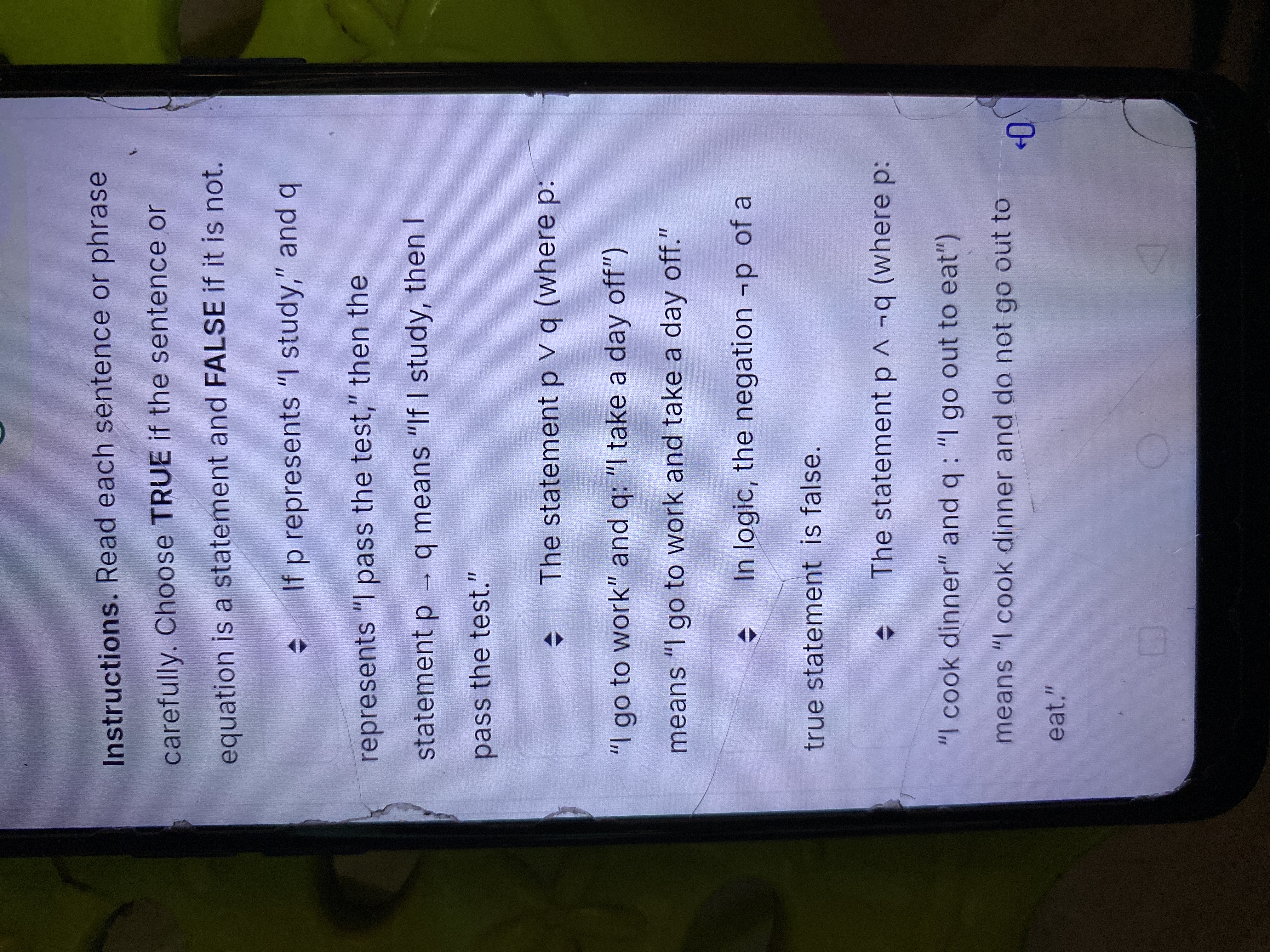If p represents 'I study,' and q represents 'I pass the test,' then the statement p → q means 'If I study, then I pass the test.' The statement p ∨ q (where p: 'I go to work' and q... If p represents 'I study,' and q represents 'I pass the test,' then the statement p → q means 'If I study, then I pass the test.' The statement p ∨ q (where p: 'I go to work' and q: 'I take a day off') means 'I go to work or take a day off.' In logic, the negation ¬p of a true statement is false. The statement p ∧ ¬q (where p: 'I cook dinner' and q: 'I go out to eat') means 'I cook dinner and do not go out to eat.'

Understand the Problem
The question is asking us to evaluate several logical statements and determine if they are true or false based on the definitions given for the variables p and q. It involves understanding logical implications, disjunction, negation, and conjunction.
Answer
All statements are **TRUE**.
Answer for screen readers
All the statements in the question are TRUE.
Steps to Solve
- Evaluating the first statement $p \rightarrow q$
The statement $p \rightarrow q$ translates to "If I study, then I pass the test." This is a conditional statement, and it is considered true unless $p$ is true and $q$ is false. Since this reflects the logical structure given, it is TRUE.
- Evaluating the statement $p \vee q$
The statement $p \vee q$ means "I go to work or I take a day off." This is a disjunction and is true if at least one of the statements is true. Since it is a valid statement involving logical operators, it is TRUE.
- Evaluating the negation of a true statement
The negation $\neg p$ of a true statement is false. If the original statement is true, its negation is indeed false. Therefore, this statement is TRUE.
- Evaluating the statement $p \land \neg q$
The statement $p \land \neg q$ translates to "I cook dinner and do not go out to eat." This is a conjunction and is true only if both parts are true. Given its logical construct, this statement is TRUE.
All the statements in the question are TRUE.
More Information
In logic, the conditional statement $p \rightarrow q$ is always true unless a true premise leads to a false conclusion. Disjunctions $p \vee q$ are true if at least one component is true, and conjunctions $p \land q$ are true only when both parts are true. Negations reverse the truth value of a statement.
Tips
- Confusing conjunctions and disjunctions. Remember, $p \wedge q$ requires both $p$ and $q$ to be true, whereas $p \vee q$ only needs one to be true.
- Misunderstanding conditionals. The statement $p \rightarrow q$ is false only when $p$ is true and $q$ is false.
AI-generated content may contain errors. Please verify critical information